Dogs have an unmatched ability to bring joy, comfort, and unconditional love into our lives. As we age, these furry companions become even more critical, often stepping up as caregivers in their own unique ways. Whether it’s with a wagging tail or a gentle nudge, dogs have an instinctive way of helping their aging owners navigate the golden years.
1. Providing Companionship
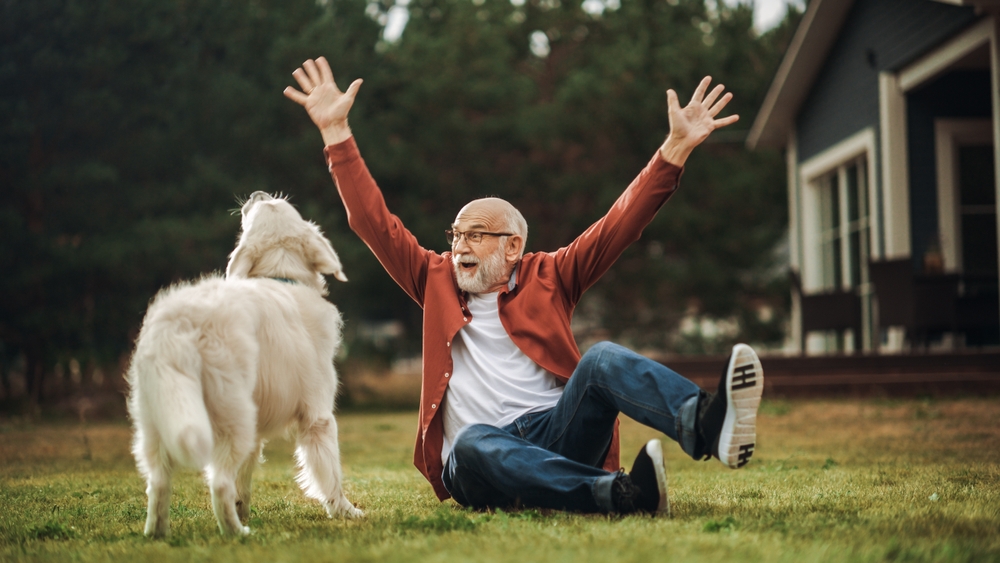
One of the most profound gifts a dog can offer is companionship. For seniors who may have lost loved ones or live far from family, a dog can fill an emotional void, providing a constant and loyal presence. Dogs have an incredible ability to sense loneliness and offer comfort with simple acts like cuddling or resting their head on your lap. These moments of connection can alleviate feelings of isolation and boost overall happiness. Knowing there’s someone who depends on you can also instill a sense of purpose, enhancing mental well-being. According to 60 Plus Club, dogs offer loyal companionship, reducing feelings of loneliness and depression among seniors.
Sharing daily routines with a dog, like morning walks or evening playtime, can bring structure and joy to an aging person’s day. This companionship isn’t just emotional—it’s physical too. Dogs are great listeners, never interrupting and always eager to hear about your day, even if you repeat the same stories. Their presence is soothing, making homes feel less empty and adding a sense of warmth and security. In an ever-changing world, the unwavering companionship of a dog can be the steadfast anchor that aging individuals cherish.
2. Encouraging Physical Activity
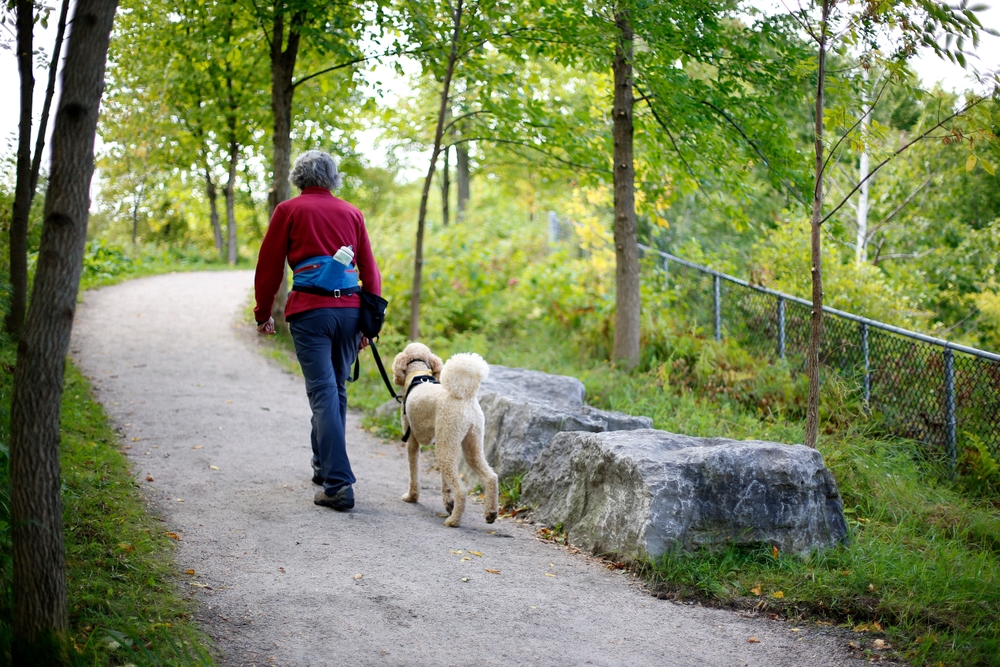
Owning a dog naturally encourages physical activity, which is crucial for aging bodies. Regular walks, playtime, and even simple acts like feeding or grooming a dog require movement, helping seniors maintain mobility and physical fitness. This regular activity can reduce the risk of chronic diseases, improve cardiovascular health, and even alleviate joint stiffness. Dogs have a way of making exercise feel less like a chore and more like a fun, shared activity. Their enthusiasm for outdoor adventures can be contagious, motivating seniors to stay active. 60 Plus Club also says regular walks and playtime with dogs encourage seniors to stay physically active, promoting better overall health.
Moreover, the routine of walking a dog provides an opportunity for aging owners to breathe fresh air and enjoy nature’s calming influence. This daily activity also has mental health benefits, offering time to clear the mind and reduce stress. Dogs don’t judge your speed or stamina—they’re just thrilled to spend time with you. This non-judgmental encouragement can help seniors build confidence in their physical abilities. Ultimately, the simple act of moving with a dog can have a profound impact on an aging person’s overall well-being.
3. Offering Emotional Support

Dogs are exceptional at offering emotional support, often picking up on their owner’s moods and responding with comforting gestures. If an aging owner is feeling down or anxious, a dog may snuggle closer, lick their hand, or gently rest a paw on their knee—small acts that convey understanding and companionship. This intuitive emotional support can reduce stress and lower feelings of anxiety, creating a calming environment at home. Simply stroking a dog’s fur can have therapeutic effects, releasing endorphins and lifting the spirit.
Beyond mere presence, dogs can distract from negative thoughts and provide a sense of normalcy amid life’s challenges. Their playful antics and unconditional love can be a constant reminder of the joy and simplicity in life. For seniors dealing with grief or depression, dogs can be a vital support, ensuring they’re never truly alone in their feelings. These furry friends don’t just offer comfort; they become emotional anchors, helping aging individuals navigate life’s emotional ups and downs with a little more ease.
4. Enhancing Social Interaction

Dogs can be social catalysts, encouraging their owners to interact more with the world around them. Taking a dog for a walk often leads to conversations with fellow dog owners or neighbors, providing an avenue for social engagement. These small interactions can be incredibly meaningful for seniors, breaking up the monotony of their day and reducing feelings of isolation. Dogs can act as icebreakers, making it easier for their owners to connect with others and forge new friendships.
Participating in dog-related activities, such as training classes or dog meet-ups, can further expand an aging person’s social network. These activities bring together like-minded individuals, fostering a sense of community and belonging. The shared love for dogs can transcend age barriers, allowing seniors to connect with people of all generations. This increased social interaction can lead to improved mental health and a greater sense of fulfillment. By simply being themselves, dogs help their owners foster new social connections and enjoy a richer, more connected life.
5. Providing a Sense of Security

Dogs are natural protectors, offering a sense of security to their owners, especially for those living alone. Their mere presence can deter potential intruders, as many burglars avoid homes with barking dogs. This added layer of security can provide peace of mind for seniors, allowing them to feel safer in their own homes. Even small dogs can have a loud bark that alerts owners to unusual activity, providing an early warning system for any potential threats.
Beyond physical security, dogs offer emotional security by being constant companions. Knowing there’s a loyal friend by their side can make seniors feel less vulnerable and more confident in their daily lives. Dogs are also perceptive to changes in their owner’s health or behavior, often alerting others if something seems off. This protective nature can be especially comforting for seniors with health concerns, as their dogs can act as informal caretakers. In essence, dogs provide a comforting presence that enhances both physical and emotional security for their aging owners.
6. Stimulating Cognitive Function
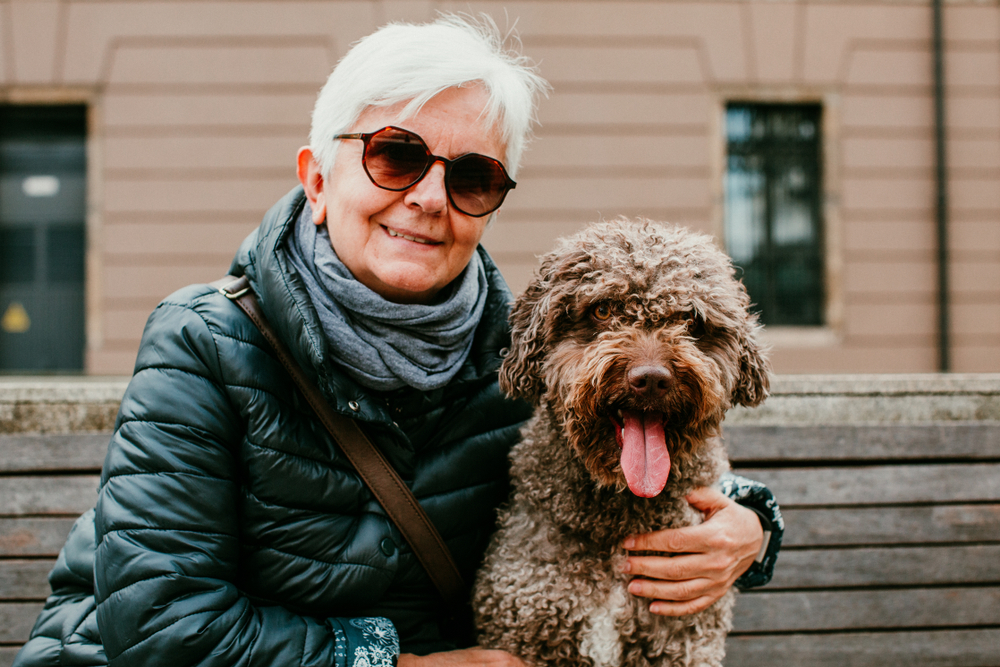
Engaging with a dog can help stimulate cognitive function, keeping the mind active and alert. Training a dog, teaching them new tricks, or simply playing games that challenge them can stimulate the owner’s brain as well. These activities require problem-solving, memory, and coordination, all of which can help maintain cognitive health in seniors. Dogs can also encourage mental exercises, like planning routes for walks or remembering feeding schedules, providing subtle ways to keep the brain engaged.
Moreover, the responsibility of caring for a dog can enhance focus and attention to detail. Seniors often find joy in learning about dog behavior, nutrition, or even the history of their breed, all of which can be mentally stimulating. This continual learning process keeps the mind sharp and engaged, offering a sense of accomplishment and pride. By participating in the mental stimulation that comes from dog ownership, aging individuals can maintain cognitive health and enjoy the benefits of a more active and fulfilled mind.
7. Reducing Stress and Anxiety
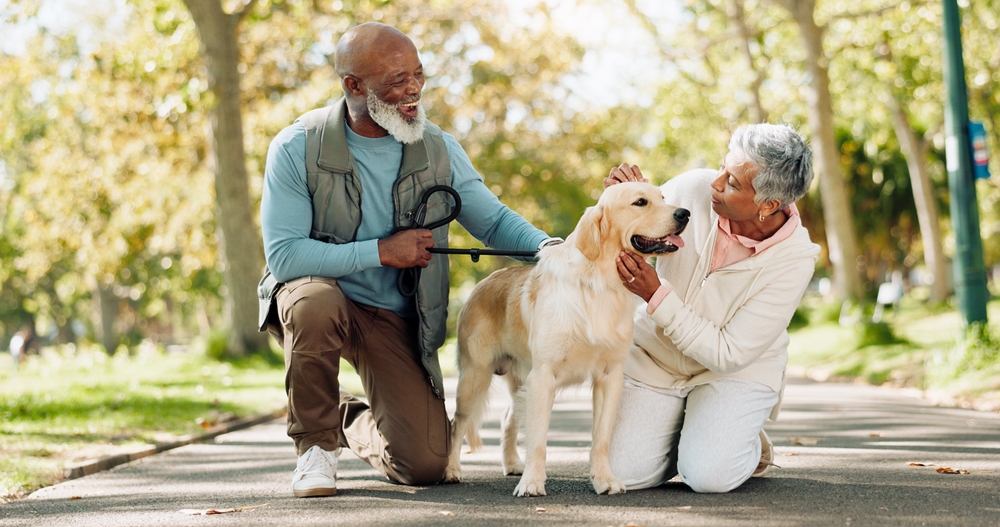
Dogs are known for their calming presence, which can significantly reduce stress and anxiety levels in their owners. Spending time with a dog, whether it’s petting them, playing, or simply sitting together, can release oxytocin, a hormone that promotes relaxation and bonding. This natural reduction in stress can be particularly beneficial for seniors dealing with life’s challenges or health issues. The rhythmic act of stroking a dog’s fur can also have a meditative effect, slowing the heart rate and promoting a sense of peace.
Beyond immediate stress relief, dogs offer a routine and structure that can help manage anxiety. Knowing they need to care for their furry friend provides a welcome distraction from worries and a focus on the present. Dogs live in the moment, and their joyful, carefree nature can remind their owners to do the same. By providing companionship and emotional support, dogs help their owners navigate anxiety with a little more calmness and clarity. Their presence is a natural antidote to the stresses of life, offering comfort and reassurance in uncertain times.
8. Encouraging Better Sleep

Believe it or not, having a dog can improve sleep quality for aging owners. The sense of security and companionship that a dog provides can help reduce nighttime anxiety, leading to a more restful sleep. Many seniors find comfort in knowing their loyal friend is nearby, creating a peaceful sleeping environment. Dogs can also help establish a regular sleep routine, as they often need bathroom breaks and feeding at consistent times, encouraging their owners to maintain a regular schedule.
Furthermore, the physical activity associated with dog ownership can lead to better sleep. Regular walks and playtime can tire both the owner and the dog, making it easier to fall asleep at night. The calming presence of a dog can also reduce nighttime waking, leading to a deeper, more restorative sleep. Their rhythmic breathing and warmth can be especially soothing, lulling their owners into a peaceful slumber. By fostering better sleep habits, dogs contribute to improved health and well-being for their aging companions.
9. Offering Routine and Stability
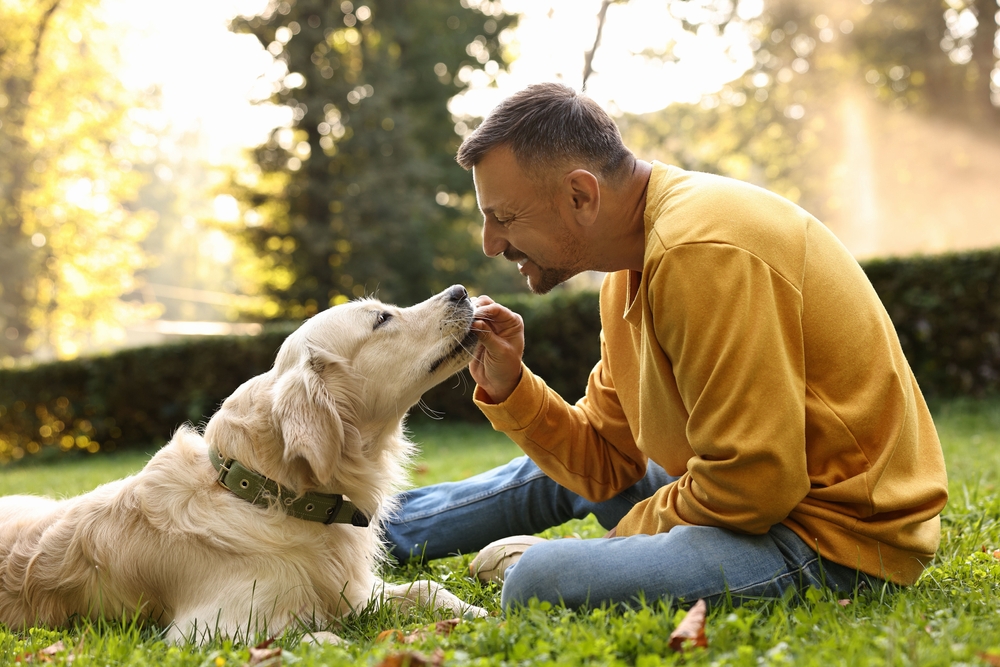
Dogs thrive on routine, and this can be incredibly beneficial for seniors. The daily schedule of feeding, walking, and caring for a dog provides structure, helping to establish a predictable and stable routine. This regularity can be comforting for aging individuals, offering a sense of control and consistency in their lives. Dogs don’t care about the world’s chaos; they just want their meals on time and a good belly rub, reminding their owners of the simple joys of life.
Having a routine centered around a dog can also promote healthy habits, like getting up early for a morning walk or winding down with an evening play session. This consistency can lead to better sleep, improved mood, and reduced stress. The routine of dog ownership can provide a sense of purpose and fulfillment, giving seniors a reason to get up and engage with the day. By offering stability in a constantly changing world, dogs help their owners navigate life with a little more peace and predictability.
10. Providing a Sense of Purpose
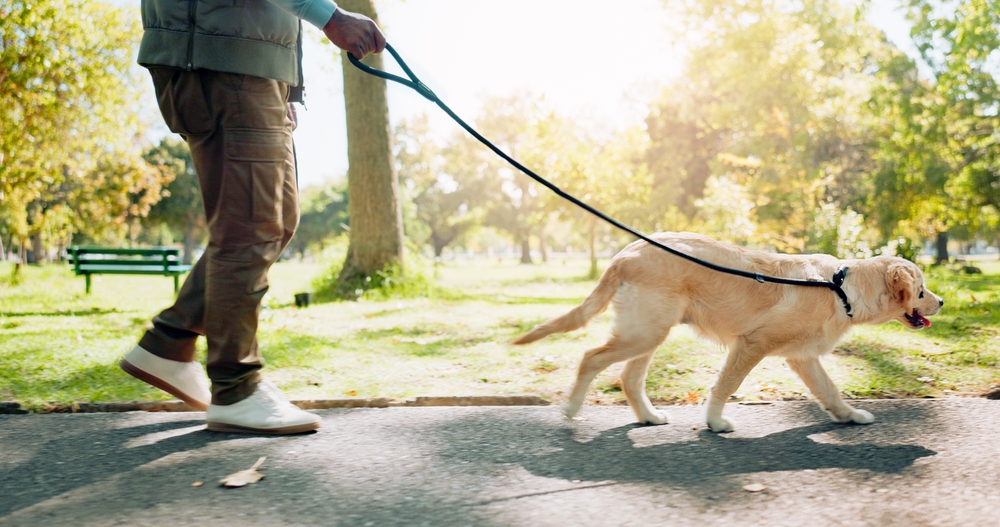
For many seniors, having a dog offers a renewed sense of purpose. Caring for a pet involves responsibility, and knowing that a dog depends on them can make life feel more meaningful. This sense of duty can motivate seniors to stay active, take care of themselves, and engage more fully with the world around them. The joy of nurturing and seeing their dog thrive can be incredibly fulfilling, providing a sense of achievement and pride.
Furthermore, the bond with a dog can offer emotional nourishment, reminding seniors that they’re still needed and loved. Dogs have a unique way of making their owners feel valued, reinforcing the idea that their presence and care matter. This mutual reliance fosters a strong emotional connection, providing a deep sense of satisfaction and contentment. By simply being themselves, dogs give their aging owners a renewed sense of purpose, enriching their lives in countless ways.
11. Acting as Therapy Dogs

Some dogs naturally take on the role of therapy dogs, offering comfort and support to their aging owners without any formal training. Their intuitive nature allows them to sense when their owner is feeling down or unwell, often responding with comforting gestures like snuggling or offering a paw. This natural ability to provide emotional support can have therapeutic effects, reducing anxiety and lifting spirits. For seniors dealing with depression or chronic illness, their dog’s presence can be a vital source of comfort and solace.
In some cases, dogs are trained as official therapy or service animals, providing specific support for their owner’s needs. Whether it’s reminding them to take medication or offering mobility assistance, these trained dogs can significantly enhance the quality of life for seniors. Their presence can reduce feelings of vulnerability and promote independence, allowing their owners to live more confidently. By acting as informal or official therapy dogs, these loyal companions offer invaluable support and care, making life a little easier for their aging humans.
12. Alerting to Health Changes
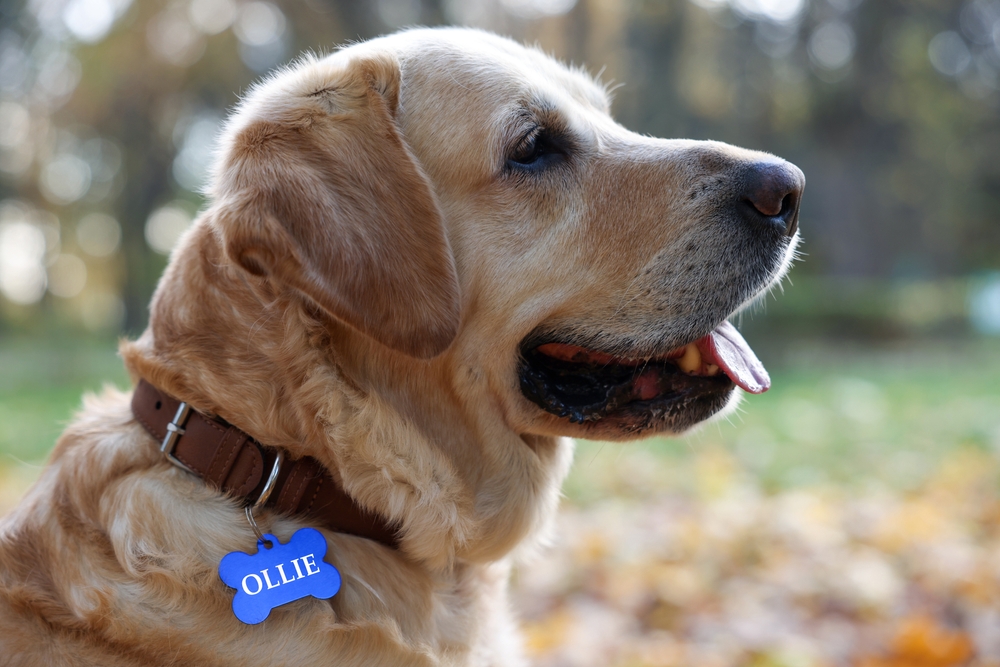
Dogs have an incredible ability to sense changes in their owner’s health, often alerting them or others when something is amiss. This intuitive nature can be particularly beneficial for seniors with health concerns, as their dogs may notice shifts in behavior, mood, or even scent that indicate a potential issue. Some dogs are trained to detect specific health conditions, such as low blood sugar or seizures, but even untrained dogs can sense when their owner is unwell.
These alerts can provide early warnings, allowing seniors to seek medical attention promptly. For example, a dog may become unusually attentive, refusing to leave their owner’s side, or exhibiting behaviors that indicate distress. This heightened awareness can be incredibly reassuring for seniors, knowing their furry friend is looking out for them. By alerting to health changes, dogs offer an added layer of care and protection, enhancing their owner’s well-being and peace of mind.
13. Boosting Mood and Mental Health
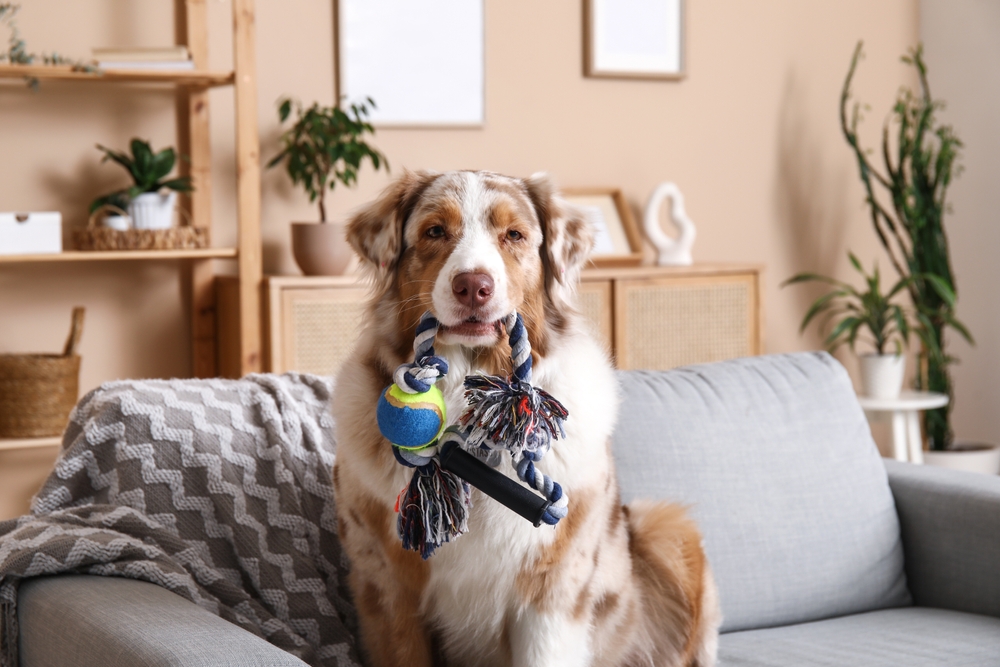
The presence of a dog can have a profound impact on mood and mental health, offering joy and laughter to their aging owners. Dogs have an uncanny ability to lift spirits with their playful antics and unconditional love. Their joyful nature is infectious, often bringing smiles and laughter even on the toughest days. This boost in mood can lead to improved mental health, reducing symptoms of depression and anxiety.
Additionally, the routine and companionship of dog ownership can provide a sense of normalcy and stability, further enhancing mental well-being. Dogs offer a distraction from life’s worries, encouraging their owners to live in the moment and enjoy simple pleasures. By providing unconditional love and companionship, dogs help their aging owners maintain a positive outlook and enjoy a happier, more fulfilling life. Their presence is a daily reminder of the beauty and joy that exists in the world, offering comfort and hope.
14. Enhancing Self-Esteem
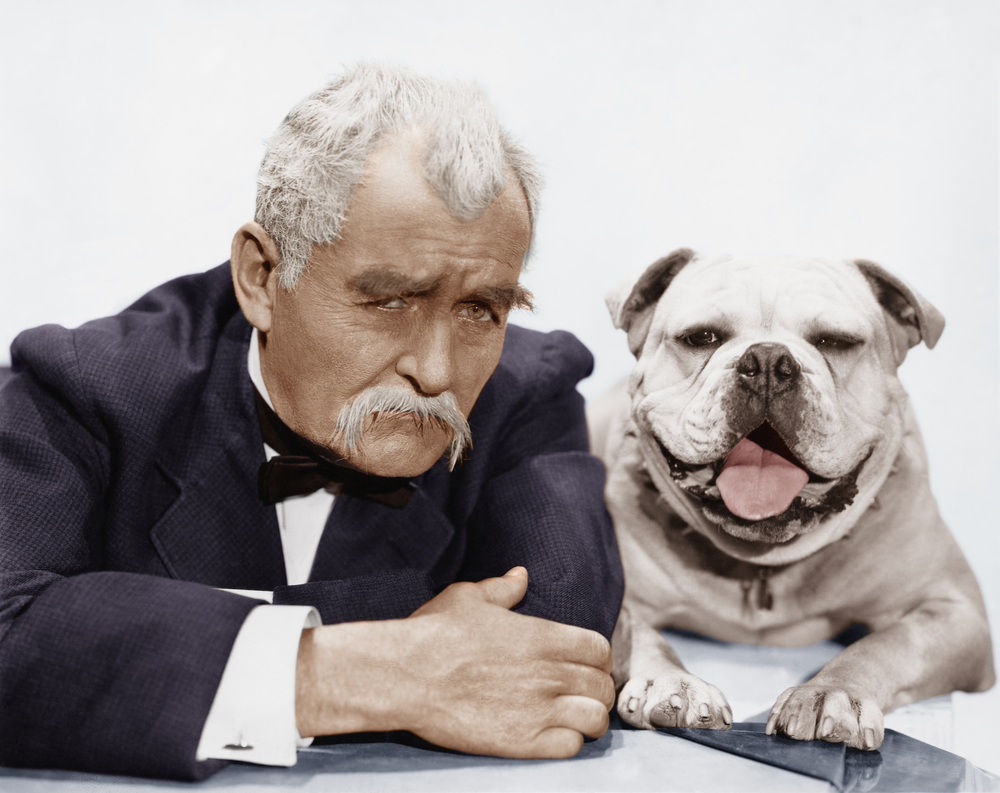
Caring for a dog can enhance self-esteem for seniors, offering a sense of accomplishment and pride. Successfully meeting their dog’s needs, whether it’s through training, grooming, or simply providing love and attention, can boost confidence and self-worth. This sense of achievement can be especially meaningful for aging individuals who may feel a loss of purpose or capability. Dogs have a way of making their owners feel valued and appreciated, reinforcing the idea that they’re capable and needed.
Moreover, the bond with a dog can enhance feelings of love and connection, further boosting self-esteem. Dogs offer unconditional acceptance, never judging or criticizing, allowing their owners to be themselves without fear of rejection. This acceptance can promote positive self-perception and encourage seniors to engage more fully with the world. By enhancing self-esteem, dogs help their aging owners lead more confident and fulfilling lives, embracing their unique strengths and abilities.
15. Providing Unconditional Love

At the heart of a dog’s care for their aging owner is the gift of unconditional love. Dogs love without condition, offering acceptance and companionship regardless of their owner’s age, health, or circumstances. This unwavering love can be incredibly comforting, providing emotional support and stability in an ever-changing world. Knowing there’s a loyal friend who loves them unconditionally can be a source of immense joy and fulfillment for seniors.
This deep bond between dogs and their owners transcends words, offering a connection that enriches life in profound ways. Dogs don’t care about wrinkles, gray hair, or physical limitations—they just want to be with their person, sharing moments of joy and companionship. This love can bolster resilience, helping seniors navigate life’s challenges with a little more grace and hope. By offering unconditional love, dogs provide an invaluable source of comfort and happiness, making life richer and more joyful for their aging humans.
